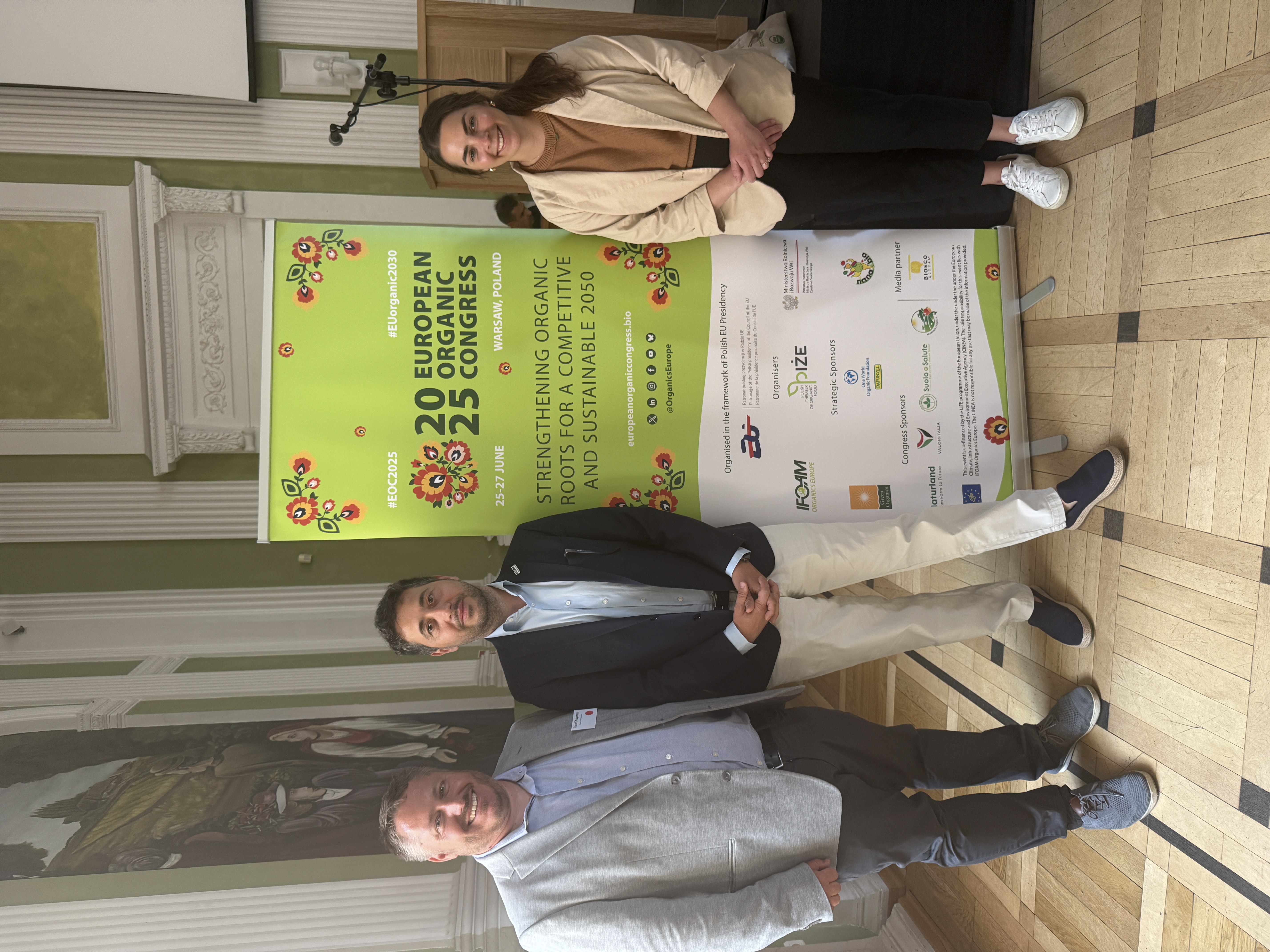 The Organic Trade Association (OTA) recently participated in the European Organic Congress, held in Warsaw, Poland. This annual conference is a gathering of European organic stakeholders discussing relevant issues facing the organic market and movement, and is the European version of OTA’s Organic Week. It travels around Europe to the capital of the current sitting EU presidency, which is currently Poland. It provides OTA a key opportunity to consult with our European counterparts on trade issues affecting U.S. businesses engaged in the European market.
The Organic Trade Association (OTA) recently participated in the European Organic Congress, held in Warsaw, Poland. This annual conference is a gathering of European organic stakeholders discussing relevant issues facing the organic market and movement, and is the European version of OTA’s Organic Week. It travels around Europe to the capital of the current sitting EU presidency, which is currently Poland. It provides OTA a key opportunity to consult with our European counterparts on trade issues affecting U.S. businesses engaged in the European market.OTA co-CEO Tom Chapman was invited to present U.S. market data and share insights into consumer sentiment toward organic in the United States as part of a global review of major organic markets, including Europe and China. The Congress also offered valuable updates on the state of EU organic regulations and highlighted emerging challenges and potential solutions within the European organic sector—many of which reflect trends we're also seeing in the U.S. Through international collaboration we are able to share best practices and strategies that can be used to move organic forward across the globe.
A central theme throughout the Congress was the growing tension between regulatory compliance and the aspirational goals of organic—such as promoting soil health, ecological balance, promoting animal welfare, biodiversity, and responsible resource use. Both U.S. and European stakeholders continue to explore how to measure and communicate these outcomes in ways that resonate with funders, consumers, and policymakers. This remains a critical area for the organic sector to expand its impact.
Other topics included consumer messaging challenges and strategies to build trust in organic. Discussions centered on the effectiveness of various sustainability labeling schemes and whether the organic sector should pursue a unified message or embrace diverse narratives. There was a strong consensus that improving the relevance and clarity of organic messaging is essential for long-term consumer engagement.
The Congress also highlighted growing interest—and hurdles—in advancing organic traceability through digitalization. Opportunities identified include geo-referencing production, improving fraud prevention, and enhancing the credibility of organic certification. However, significant challenges remain, including data ownership and protection, the lack of organic-specific identifiers in statistical systems, and the need for consensus on data quality standards.
A timely update was provided on the EU Organic Regulation. OTA remains actively involved in the renegotiation of the U.S.-EU Organic Equivalence Arrangement, which was prompted by the EU’s regulatory updates in 2018. With the EU’s deadline of December 31, 2026, approaching, OTA continues to advise U.S. government partners to ensure that any new agreement maintains strong market access and delivers clear benefits for U.S. organic businesses and farmers.
The recent European Court of Justice (ECJ) case regarding the labeling of organic products and the use of the EU organic label also remains under review. While the European Commission has acknowledged the need for a resolution, no timeline has been announced. For now, existing trade rules under the current equivalence arrangement remain in place.
Following the Congress, OTA visited Bio Planet, a leading organic food packager and distributor in Poland. Since 2007, Bio Planet has offered more than 7,200 certified organic SKUs, spanning fresh produce, dairy, meat, frozen foods, dry staples, and snacks. Most of the products originate from Europe and North Africa, with limited imports from North America and Asia. Poland’s organic market is currently valued at approximately $550 million.
Fun Fact: Poland’s largest organic export to the United States is organic vodka.
For more information about OTA’s engagement on European trade issues and the U.S.-EU Organic Equivalence negotiations, please contact Alexis Bramley.
